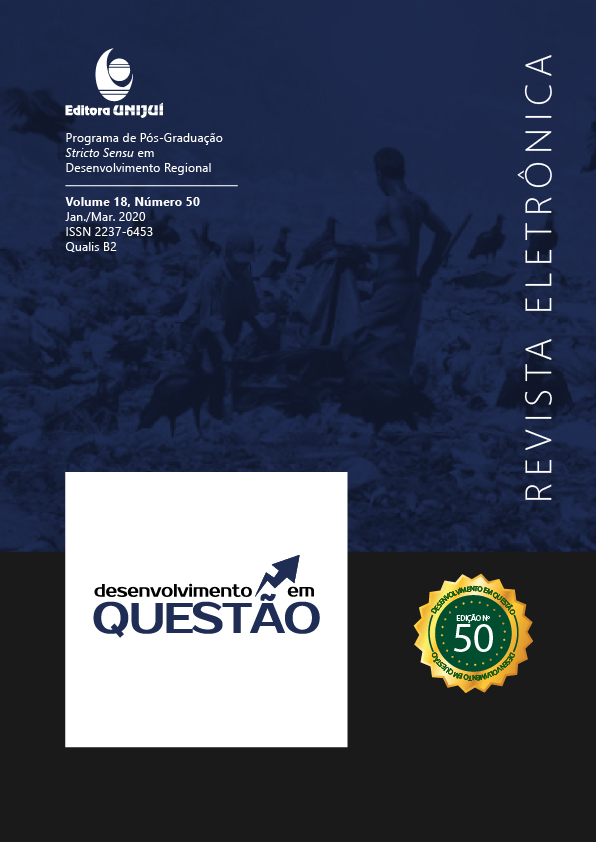The banana´s trading conventional market: family farmers subjection in Vale do Ribeira-SP
DOI:
https://doi.org/10.21527/2237-6453.2020.50.146-165Keywords:
Rural Development, Family farming, Marketplace.Abstract
The municipalities of Vale do Ribeira have the lowest rates of human development in the state of São Paulo. The main productive activity of the territory, banana farming, has a significant effect on the indicator that evaluates the generation of income in these municipalities. In this context, the article aims to emphasize the understanding of the so-called "conventional banana market", trying to demonstrate how as the performance of intermediary agents in this market imposes limits on the generation of income in family agriculture. For this, six managers of producer organizations and 38 banana producers from the municipalities of Miracatu and Sete Barras. The presence of local individual intermediates and large wholesale companies was identified. It was found that wholesale companies have the economic power to influence and determine the prices paid to the producer, which in general is considered low because it significantly restricts the profitability of the farmers interviewed. In addition, it should be noted that local intermediaries established relationships with producers that created other disadvantages, notably default. It is concluded that the commercialization of bananas in the conventional market by means of intermediates inhibits possibilities of economic development of these farmers and, consequently, of the whole territory of the Vale do Ribeira dependent on the commercialization of these fruits.
Downloads
Published
How to Cite
Issue
Section
License
By publishing in Revista Desenvolvimento em Questão, authors agree to the following terms:
All works are published under the Creative Commons Attribution 4.0 International License (CC BY 4.0), which allows:
Sharing — to copy and redistribute the material in any medium or format;
Adaptation — to remix, transform, and build upon the material for any purpose, even commercially.
These permissions are irrevocable, provided that the following terms are respected:
Attribution — authors must be properly credited, a link to the license must be provided, and any changes made must be indicated.
No additional restrictions — no legal or technological measures may be applied that legally restrict others from doing anything the license permits.
Notices:
The license does not apply to elements that are in the public domain or covered by legal exceptions.
The license does not grant all necessary rights for specific uses (e.g., image rights, privacy, or moral rights).
The journal is not responsible for the opinions expressed in the articles, which are the sole responsibility of the authors. The Editor, with the support of the Editorial Board, reserves the right to suggest or request modifications when necessary.
Only original scientific articles presenting research results of interest that have not been previously published or simultaneously submitted to another journal with the same purpose will be accepted.
Mentions of trademarks or specific products are intended solely for identification purposes and do not imply any promotional relationship by the authors or the journal.
License Agreement (for articles published from 2025 onward): Authors retain the copyright to their article and grant Revista Desenvolvimento em Questão the right of first publication.











